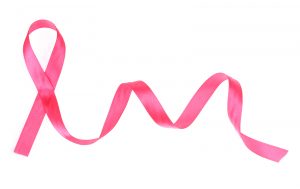“The sooner we find it the better. Because then we can treat it.” ̶~ Jill Hancock
 Breast cancer, two words that strike fear in every woman’s mind — and with good reason. According to the American Cancer Society, breast cancer is the most “common cancer in American women, except for skin cancers.” For 2019, the ACS estimates that:
Breast cancer, two words that strike fear in every woman’s mind — and with good reason. According to the American Cancer Society, breast cancer is the most “common cancer in American women, except for skin cancers.” For 2019, the ACS estimates that:
- About 268,600 new cases of invasive breast cancer will be diagnosed in women.
- About 62,930 new cases of carcinoma in situ (CIS) will be diagnosed (CIS is non-invasive and is the earliest form of breast cancer).
- About 41,760 women will die from breast cancer.
However, all news about breast cancer is not bad — particularly for middle Georgia women. Navicent Health’s Peyton Anderson Cancer Center has a dedicated, specialized area for the diagnosis and treatment of breast cancer: The Breast Care Center, and the people who work there call it “A community treasure most don’t know about,” and it’s a secret they don’t want to keep hidden particularly during October, Breast Cancer Awareness Month. If you are diagnosed with breast cancer, they want you to receive the best care available and become one of the more than 12 million Americans who are considered cancer survivors.
The Breast Care Center, Navicent Health, is one of only two Breast Centers of Excellence in Georgia (the other is in Rome) rated so by the National Quality Measures For Breast Centers. Navicent understands many patients have needs that go beyond “medical” care. Navicent employs two types of “navigators; a medical oncology nurse that guides each patient through her process of treatment, linking doctors, radiologists and other professionals to the patient and explaining all the details of the treatment process and there is a non-medical navigator who deals with other issues a patient might have.
That’s where Gwin Jackson, M.Ed., steps in. Though not a nurse, Jackson deals with patients’ non-medical requirements. “My job is to find several different resources that may provide financial assistance to patients for non-medical issues,” Jackson said. “For instance, a utility bill; they won’t pay the hospital’s bill; they won’t pay the doctor’s bill, but they might pay the utility bill, they might get some assistance with medications. I’ve gotten people’s rent paid. Just different things that are not medical related.”
The Breast Care Center has physicians willing to see patients who don’t necessarily have insurance or don’t have a primary care physician. The main thing is patients need to know their bodies and try to catch anything abnormal early.
There are basic things a woman can do even before scheduling a mammogram said Christa Loyd, a 2014 finalist for the statewide “Nurse of the Year Award.” Loyd strongly recommends, “The monthly breast exams, even before they are at an age where their physician recommends they have a mammogram. It is important for us to be involved in our own health care. Monthly breast exam make sure women are in tune with what’s going on with their bodies so they are aware when they notice changes.”
Jill Hancock, RN, BSN, OCN, oversees, as nurse director, the Infusion Center, Breast Care Center, 30 Urgent Care Centers, outpatient plasmapheresis (a process that filters blood and removes harmful antibodies) and two screening diagnostic centers, explained that although breast cancer is the most common cancer in women and is quite involved, it is also the most researched cancer and receives the most funding due the power and unity of women who want to find a cure.
Written by Charles E. Richardson
